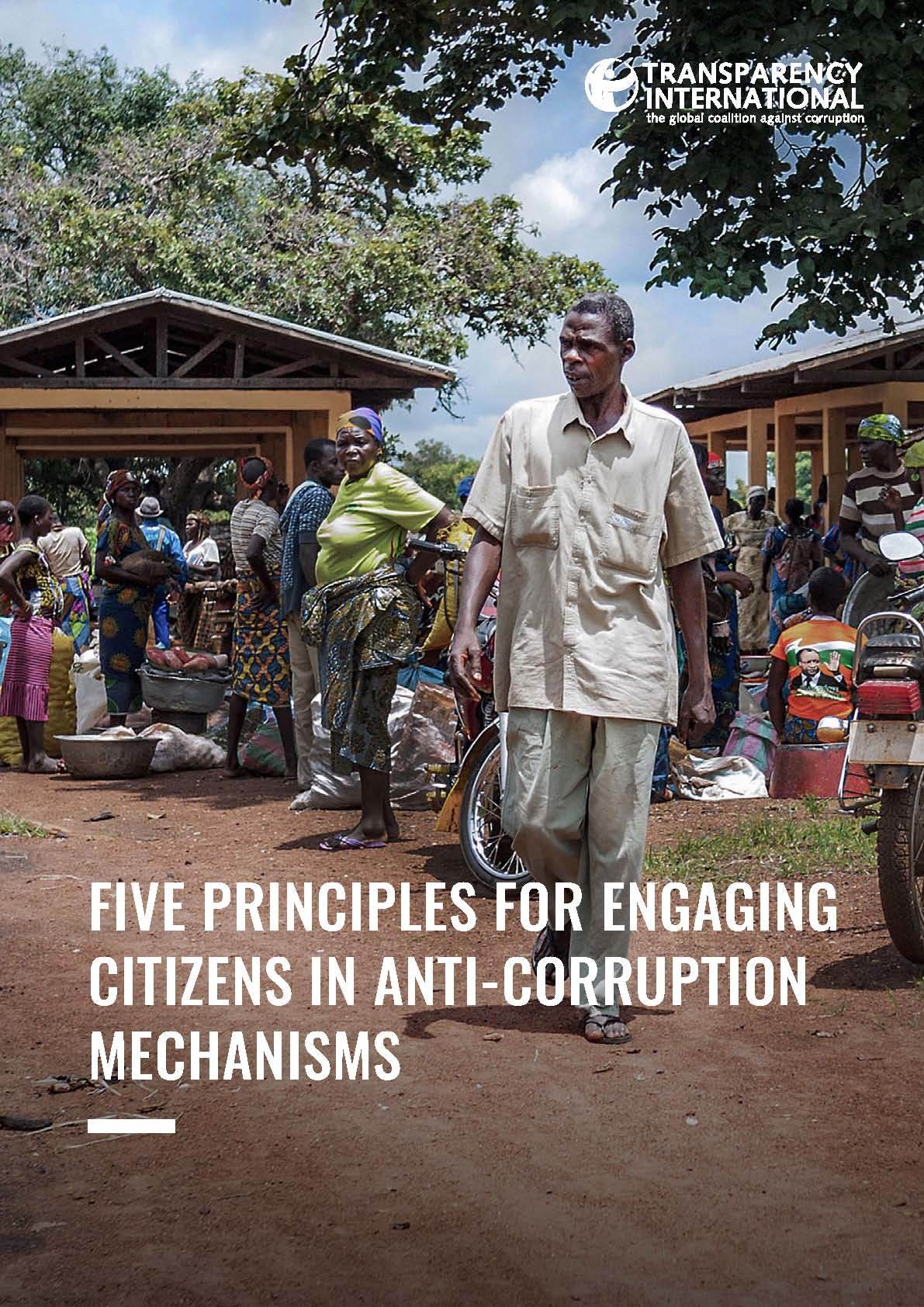Five principles for engaging citizens in Anti-Corruption mechanisms
-
Are you an anti-corruption civil society advocate? A government official willing to fight corruption? A donor funding anti-corruption initiatives? Are you concerned about fighting corruption effectively, including by mobilising the people most affected? Are you looking for ways to generate action and encourage citizens to make better use of existing anti-corruption mechanisms?
In this guide, we build on our collective understanding that citizen engagement matters in the fight against corruption and provide insights about how organisations might go about designing more effective, sustainable and engaging anti-corruption mechanisms. Based on research into why and how people decide to report corruption and what sustains initial engagement, we offer five principles that inform how organisations can understand, analyse and possibly adapt their anti-corruption mechanisms to become more effective.
These principles can guide practical steps to create and adapt anti-corruption mechanisms to ensure their usefulness in addressing grievances experienced by citizens. The principles are applicable across countries and contexts and are relevant for fostering engagement across different types of corruption problems.
We do not pretend, however, to offer a ready-made solution. The key to making anti-corruption mechanisms more effective is an organisation’s willingness to continuously learn from the people it serves. Organisations should try to experiment and to adapt in ways that respond to what citizens need in a specific anti-corruption context and what is achievable within a particular environment. This guide is based on a paper prepared for Transparency International by Global Integrity, From Grievance to Engagement – How People Decide to Act Against Corruption. It explores how and why citizens decide to take action against corruption and presents a theory of change and practical guidance to support organisations in exploring how to engage people more successfully in their specific contexts. The paper is informed by field work done in collaboration with Transparency International Georgia and I-Watch Tunisia.

